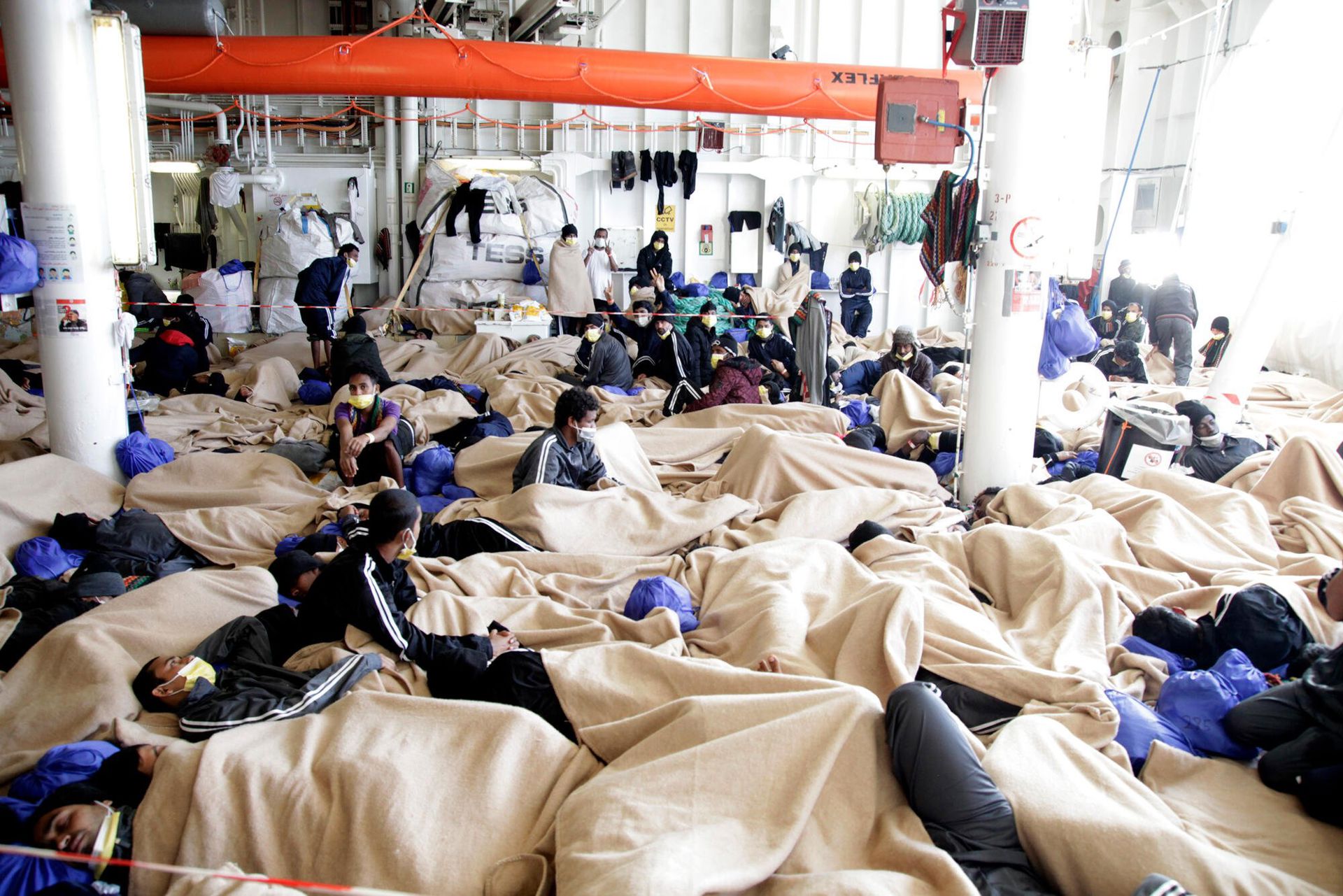"More than 600 migrants, asylum seekers and refugees, peacefully demonstrating for relocation, protection, and evacuation from Libya were arrested and moved to Ain Zara detention center in the southern part of Tripoli, where hundreds of migrants, refugees and asylum seekers are already detained in overcrowded cells and deprived living conditions," explains Gabriele Ganci, Head of Mission for Médecins Sans Frontières in Libya. "During the weekly visit to Ain Zara to provide medical and mental health care to people detained, MSF teams have treated patients with stab wounds, beating marks, and signs of shock/trauma caused by the forced arrests. Among them there were people who had been beaten and separated from their children during the raids." he continues.
Ellen van der Velden, Operations Manager for Médecins Sans Frontières in Amsterdam explains further: "Not only does this once again prove how migrants are subject to random and arbitrary detention - something that applies to virtually all migrants currently in Libya - but these people are additionally detained for speaking up for basic protection, safety and treatment in-line with humanitarian law."
"Once again, we call on the Libyan authorities to halt the mass arrests. We also urge the same authorities to find dignified alternatives to detention, as well as calling on the EU to stop their efforts supporting the perpetration of an unending system of detention, abuse and violence in Libya." She concludes.
For the last two months, MSF teams in Tripoli have carried out mobile clinics on a weekly basis in Ain Zara detention center, providing basic health care assistance, mental health consultations, and humanitarian affairs related services to migrants, refugees and asylum seekers detained in the structure. On January 10th, MSF teams were able to provide medical care to 68 people detained- 7 of whom were referred to hospitals for further medical care- and organized group therapy sessions for 190 patients inside the detention center. MSF has been working in detention centres in Libya since 2016, providing people with basic healthcare and psychosocial support. MSF teams also identify vulnerable people and refer patients requiring specialist care to hospitals across Libya. In addition, MSF treats people upon disembarkation after interception at sea and treats Tuberculosis patients in the city of Tripoli.


